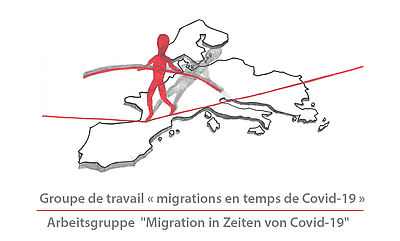Kerstin Martel - Shifting EU mobilities during a sanitary crises: Implications for models of membership and EU citizenship – An exploratory study on cross-border immobility
26. Oktober | 14:00
Kerstin Martel (CMB)
Shifting EU mobilities during a sanitary crises: Implications for models of membership and EU citizenship – An exploratory study on cross-border immobility
Since March 2020 pandemic restrictions, legitimated by a sanitary state of emergency, have altered the right of free movement for EU citizens within the region. Unilateral national decisions on border closures, enforced by martial law, were followed by continuously changing, arbitrary and often inconsistent entry restrictions across the European Economic Area (EEA) and the Schengen Area. This stands in stark contrast to pre-pandemic conditions, where transnational life and work modes had been encouraged by public and private mobility polices over several decades. Temporary bilateral agreements for business travelers or “essential workers” and so-called travel corridors during touristic high seasons did not only drastically reshuffle the geopolitical landscape on a macro-level but led to unequal access to the right of travel and free movement amongst EU citizens. In this context we explore with the help of a few cases, how EU border crossings were lived and experienced by EU citizens over a period of 18 months. We exemplify how multilayered individual constellations of citizenship, residency, and professional affiliations led to equivocal situations, and hence, to uncertainty on a micro-sociological level. Subsequently we demonstrate that pandemic related re-bordering processes within the Schengen Area trigger the need to theoretically re-assess understandings of EU citizenship as model of membership.
Kontakt
Nikola Tietze
Nikola.Tietze ( at ) wiku-hamburg.de
